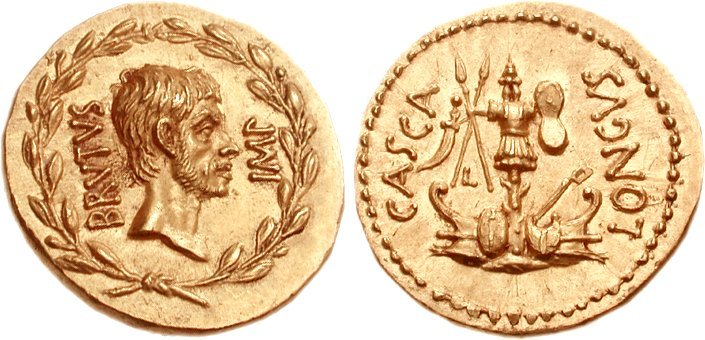Welcome to a New Series.
I call this series "Sermons You'll Never Hear In Church." From time to time, I hope to publish one as God supplies the ideas and the courage.
These are bible truths that somehow have been overlooked by every pastor and preacher I've ever come across. If it should happen that you have heard one of these sermons in church, please do share a report?
"It is a poor sermon that gives no offense; that neither makes the hearer displeased with himself nor with the preacher."
- George Whitefield -
Why aren't these sermons being preached?
As you read and consider each sermon, I'll leave it up to you to determine why. However, I have two competing theories as to why you've never heard these sermons before. I think the most likely reasons are ignorance and cowardice.
When it comes to preachers and preaching, neither reason is particularly complimentary. There may be other possible reasons. If you think of one, we would love to hear from you.

Heard any good ones from the pulpit lately?
Image courtesy of Dean Moriarty and http://pixabay.com
I'm going to share one of Jesus' sermons with you.
If you've ever read the bible, you may have heard, but glossed over it. Maybe your preacher never pointed it out?
For contrast, I'll first mention Jesus' most famous "tax sermon" that you have heard a million times. I am of course referring to
"Render Unto Caesar!"
Remember that one? Of course you do. If you've ever warmed a pew, you've undoubtedly heard that sermon.
"Render Unto Caesar" is a very popular sermon come early April in the United States. It is often repeated throughout the year, just to keep everyone primed for the next tax terrorism season. And while I'm less sure about the timing, I know that "Render" is also preached in countries all around the world.
What makes it so popular?
The organized church, as an institution, generally tends to toady, or "suck up," to governments. In order to avoid or minimize persecution, preachers all too often take a "sound bite" from something Jesus said and misrepresent its meaning.
But that's a sermon for another time. Let's get right into today's sermon, based squarely on things that Jesus said.
"Tax Collectors Are Mentally Ill, and Ought to Quit"
Jesus said what?
I know, I know... you've never heard this sermon before. So, listen up.
Jesus had been preaching all around Galilee.
When he came across Levi, a publican (i.e. tax collector), seated in the tax collection booth, Jesus said "Follow me."
"After this he went out and saw a tax collector named Levi, sitting at the tax booth. And he said to him, “Follow me.” And leaving everything, he rose and followed him."
- Luke 5:27-32
Levi left everything behind.
He abandoned his career as a publican. He never looked back.
When he later threw a dinner party for Jesus, many of Levi's tax-collector friends were also invited.
This drew the critical ire of the Pharisees. They asked why Jesus would eat with "tax collectors and sinners."
"And the Pharisees and their scribes grumbled at his disciples, saying, “Why do you eat and drink with tax collectors and sinners?”"
- Luke 5:27-32
In those days, tax collectors were deeply despised. They were considered mercenary traitors, which, in all truth, they were. There was definitely something wrong with them, a mental and moral flaw.
Jesus said as much:
"And Jesus answered them, “Those who are well have no need of a physician, but those who are sick. I have not come to call the righteous but sinners to repentance.”"
- Luke 5:27-32
Jesus said that tax collectors were sick. He said they were unrighteous sinners. He condemned their occupation. He called on them to repent, to leave what they were presently doing.
The tax man is universally hated.
Endless books have been written. Countless dramas and movies have been made. It was true in Jesus' day. It is still true today. Among the most despised professions in the world are politicians, lawyers, and especially tax collectors.
Why is that?
We despise tax collectors, lawyers, and politicians, because, deep in our heart of hearts, we know that these are dishonest occupations. We know in our bones that there is something terribly wrong with human government as we know it.
God has built the one, true law, his law, into our hearts and minds. We know that it is wrong to steal. We know that force initiated by human government violates God's second greatest commandment, ‘You shall love your neighbor as yourself.’
You can dress it up with any kind of fancy language.
You can say "It's OK if 'government' does it."
You can insist government only wants us to "Pay our fair share."
You can say "It's for the public good."
Any way you try to dress taxation in sheep's clothing, it is still the wolf of theft, robbery, and extortion. It is still backed by murder.
Taxation is theft,
pure and simple. It is immoral to take money and property by force.
IRS and treasury agents ultimately collect "taxes" at the point of a gun. Politicians pass "laws" whose ultimate result is the murder of "citizens" who refuse to voluntarily "comply."

Roman Coins
Image courtesy of Classical Numismatic Group, Inc. CC BY-SA 2.5
Later on in the gospel accounts,
we see Peter, John, and others plying their old trade again as fishermen. We even see Jesus guiding them to improve their craft.
Have you ever wondered why we never see Levi, or Matthew, or Zacchaeus, return to tax collecting?
It is because taxation is a criminal activity.
Jesus called on the tax collectors to repent of their evil deeds, and they did.
When, for example, Zacchaeus repented — when he quit and left "the profession" behind, promising to make reparations — Jesus pronounced "salvation has come to this house."
What about John the Baptist?
Some have made a big deal about his response to the tax collectors who came for a baptism of repentance. They assert that John did not condemn the occupation itself.
Such a conclusion is unwarranted.
John's reply was “Collect no more than you are authorized to do.”
It is quite evident that, because the publican's only source of income was to "collect more than authorized," that would be tantamount to working for nothing.
You do the math.
How long would you continue working for nothing?
Furthermore, the very next injunction given by John Baptist was to Roman soldiers. He told them “Do not extort money from anyone by threats or by false accusation...”

"In God We Trust" — All Others Pay Cash
Image courtesy of HealthWyze and http://pixabay.com
What's the bottom line?
Involuntary taxation, collected at the point of a gun for whatever purpose, is an egregious evil that Jesus condemned.
If Jesus condemned the practice, called it "sick," viewed those who practiced and supported taxation as "sinners," and considered them "lost," why in heaven's name would we persist in apologizing for it?
Why do we support governments in their practice of extortion? Why do we lend our support and credence to the criminal organizations that impose such evil on our neighbor?
"Bear fruits in keeping with repentance."
That's what John the Baptist said to the tax collectors.
I say, "Amen!"
FIN
LOOK! Check out our amazing product:>>CLICK HERE!<<
You are why I'm here on Steemit!
I have very eclectic interests and hope, over time, to write about them all.
⬇️To Check Out @creatr's World⬇️CLICK Each Image Below⬇️

|

|

|


